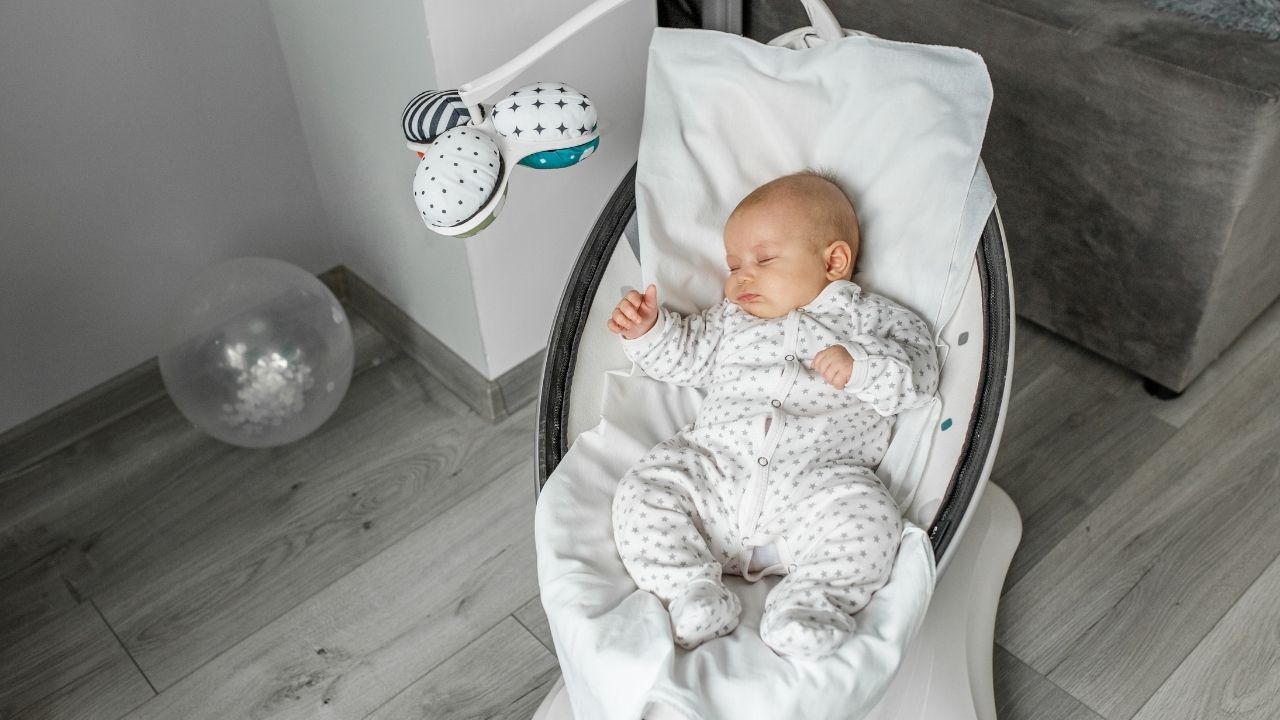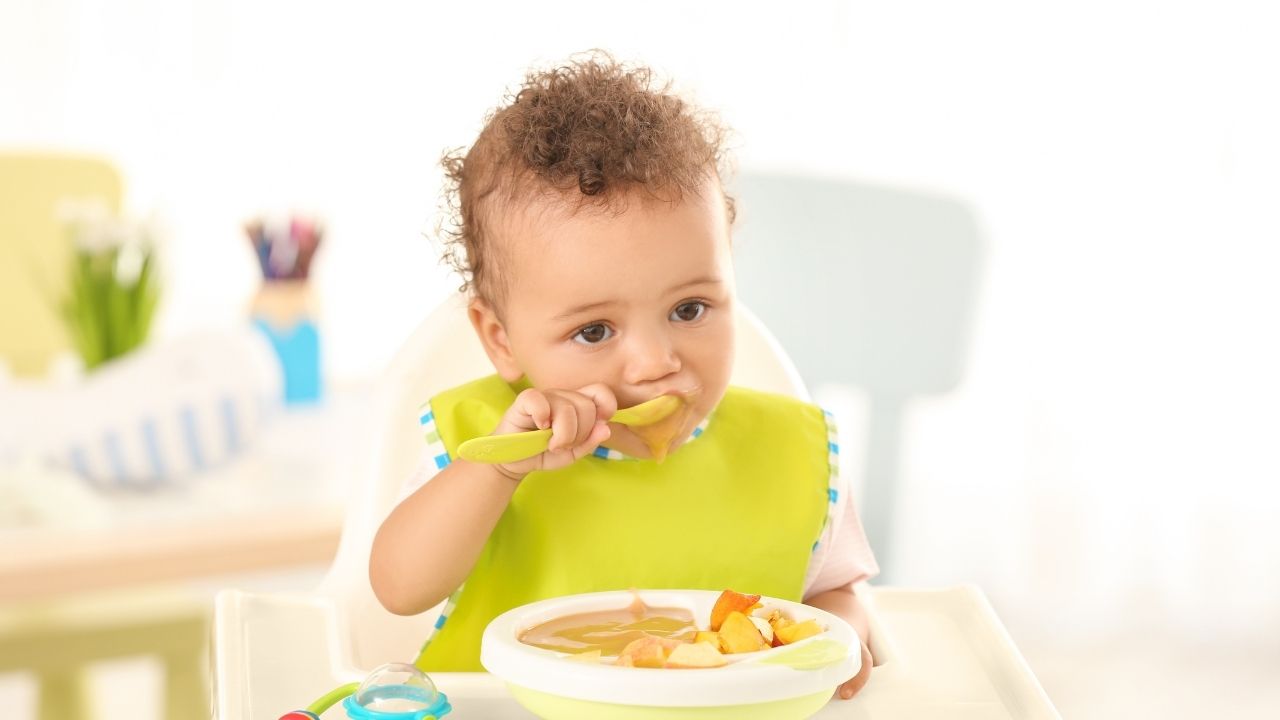You thought bringing a baby into the world was challenging enough, but now you have to navigate the minefield of allergies and sensitivities too. Congratulations! But don't worry, with some careful planning and management, you can create a safe and healthy environment for your little one.
Allergies and sensitivities are becoming increasingly common in babies, so it's essential to understand how to identify and manage potential allergens in your home. From food to pollen, there are many things that can trigger an allergic reaction in your baby. As their primary caregiver, it's up to you to take the necessary steps to keep them safe. In this article, we'll explore different strategies for managing allergies and sensitivities in babies so that you can breathe easy knowing your child is protected.
Understanding Allergies and Sensitivities in Babies
You need to understand what causes allergic reactions in infants so you can prevent them from occurring. Allergies occur when the immune system reacts to a substance that it perceives as harmful, even if it is not. Common allergens for babies include cow’s milk, eggs, soy, wheat, peanuts and tree nuts. When your baby comes into contact with an allergen, their immune system may produce antibodies which trigger the release of histamines and other chemicals causing symptoms such as hives or swelling.
Symptoms of an allergic reaction can vary from mild to severe and they can appear within minutes or hours after exposure to the allergen. Mild symptoms may include skin rash or itching while severe symptoms may include difficulty breathing or swallowing. If you suspect that your baby has an allergy or sensitivity, it’s important to seek medical advice immediately. Prevention is key in managing allergies and sensitivities in babies; avoiding known allergens is crucial but medication such as antihistamines can also be prescribed by a doctor if necessary.

Identifying and Managing Allergens at Home
Navigating the potential landmines of allergens in your home can be like walking through a minefield, but with some careful planning and awareness, you can create a safe haven for your little one. Here are three tips to help you identify and manage allergens at home:
Preventing cross contamination: Keep allergenic foods such as peanuts, milk, eggs, wheat or soy away from other foods when preparing meals. Use separate cutting boards and utensils for these foods and wash hands thoroughly before handling other food items.
Allergy-friendly home products: Consider using hypoallergenic bedding materials such as cotton sheets and blankets that are washed frequently in hot water to remove dust mites. Avoid synthetic fragrances found in air fresheners, candles or cleaning products which may trigger allergies.
Cleaning routines: Regular cleaning is essential to keep allergen levels low at home. Vacuum carpets frequently with a high-efficiency particulate air (HEPA) filter vacuum cleaner that traps small particles of dust and pollen. Clean surfaces regularly with non-toxic cleaners that do not contain harsh chemicals or fragrances which may irritate sensitive skin.

With these simple steps in mind, you'll be able to create an allergy-free environment for your baby at home! Now let's move onto the next subtopic about breastfeeding and allergies.
Breastfeeding and Allergies
If you're a breastfeeding mom, it's important to know that what you eat can affect your little one's health and comfort. Breastmilk is the best source of nutrition for babies and has numerous benefits, including allergy prevention. Studies have shown that breastfed infants have a lower risk of developing allergies than formula-fed infants. This is because breast milk contains antibodies that help protect babies from allergens.
However, some babies may experience discomfort or allergic reactions if their mothers consume certain foods while breastfeeding. For instance, if your baby is lactose intolerant, consuming dairy products may cause digestive issues such as gas, bloating, and diarrhea. In such cases, you may need to eliminate lactose-containing foods from your diet or consult with your healthcare provider for guidance on alternative sources of calcium and other nutrients. As your baby grows older and begins to explore solid foods, there are steps you can take to help manage allergies and sensitivities which we will discuss in the next section.
Introducing Solid Foods to Your Baby
It's time to spice up your baby's palate and open the door to a world of flavors as you start introducing them to solid foods, creating a rainbow of colors on their plate. But before diving into this exciting journey, it is crucial to consider two key factors: food consistency and timing of introduction. Start with pureed or mashed foods, gradually moving towards thicker textures as your baby develops their chewing skills. As for timing, breastmilk or formula should remain the primary source of nutrition until six months old. After that, you can begin slowly introducing solids while continuing to offer milk feeds.

The variety of foods you introduce to your baby plays a crucial role in reducing the risk of developing allergies later in life. It is recommended that parents offer a diverse range of foods from different food groups and potential allergens such as peanuts, tree nuts, shellfish, wheat products from six months onwards. To make sure your baby tolerates new ingredients well, introduce one at a time over three days while monitoring any allergic reactions like hives or difficulty breathing carefully. Remember that babies are unique individuals with varying dietary needs; consulting with your pediatrician will help determine which specific foods will suit your little one best.
Transitioning smoothly into our next subtopic about 'responding to allergic reactions,' it is essential for parents always to be prepared and informed about how they can manage allergies and sensitivities in their baby effectively.
Responding to Allergic Reactions
As parents, you'll want to know how to handle it if your little one has an allergic reaction while exploring new foods. Recognizing symptoms is crucial in responding to allergies. Look for signs such as hives, swelling of the face or lips, difficulty breathing, vomiting or diarrhea, and even loss of consciousness. If you suspect that your baby is having an allergic reaction, act quickly and seek medical attention immediately.
Emergency preparedness is also essential when managing allergies in babies. Make sure to always have a fully stocked first aid kit on hand and learn basic CPR techniques so that you are prepared to respond in case of emergency. Additionally, keep track of any medications your baby may need for their allergies and ensure they are easily accessible at all times. By being proactive with emergency preparedness and recognizing symptoms early on, you can help keep your baby safe from potential allergic reactions.

As important as it is to be aware of the signs and symptoms of an allergic reaction in your baby, working with your pediatrician is equally critical. In the next section, we will discuss how partnering with your healthcare provider can help you better understand what triggers your baby's allergies and provide guidance on proper treatment options moving forward.
Working with Your Pediatrician
Seeking professional help is crucial in managing your baby's allergies and sensitivities. Your pediatrician can guide you through the diagnostic process, which may include skin tests, blood tests, or an elimination diet. Once a diagnosis has been made, your pediatrician can help you develop a management plan that may involve avoiding allergens, taking medication, or carrying emergency epinephrine.
Seeking Professional Help
You might want to consider getting some help from a professional who can guide you through this difficult time. Finding specialists who specialize in allergies and sensitivities can make a big difference when it comes to managing your baby's condition. They have the expertise to identify triggers and provide personalized recommendations that work best for your child.
If cost is a concern, it's important to check with your insurance provider about coverage for allergy-related services. Some plans may cover visits to allergists, immunologists, or other specialists, while others may require pre-authorization or referrals from your pediatrician. Don't hesitate to ask questions and explore different options so you can find the right resources for your family's needs. With professional support and proper care, you can help ensure that your baby stays healthy and happy despite their allergies or sensitivities. Now let's move on to developing a management plan for your baby's allergies and sensitivities.

Developing a Management Plan for Your Baby's Allergies and Sensitivities
Now that you have sought professional help for your baby's allergies and sensitivities, the next step is to develop a management plan. This involves creating routines and taking necessary precautions to avoid allergens that trigger your baby's reactions. You may also need to consider allergy testing to identify specific triggers.
Firstly, it is important to establish daily routines for your baby, such as regular mealtimes and naps. This helps maintain a consistent schedule for administering any necessary medications or treatments. Additionally, be sure to communicate with your child's caretakers about their allergies and sensitivities so they are aware of any precautions that need to be taken when caring for them.
Secondly, if allergy testing has not been done yet, it may be recommended by your healthcare provider. Allergy testing can help identify specific allergens that trigger your baby's reactions and allow you to take steps in avoiding those allergens altogether. With this information in hand, you can develop an action plan for managing allergies and sensitivities in different scenarios such as at home or away from home. Remember that every baby is unique, so it is important to work closely with a healthcare provider in developing a tailored management plan that meets the needs of your little one.
Frequently Asked Questions
Can allergies and sensitivities in babies go away on their own over time?
Allergies and sensitivities in babies can sometimes go away on their own over time, but it's important to note that this isn't always the case. In some instances, allergies may persist or even become more severe as the child grows older. Dealing with allergies and sensitivities in babies requires a long-term approach that involves careful monitoring of symptoms, avoiding known triggers, and seeking medical advice when necessary. To understand the underlying reasons for allergies and sensitivities in babies, it's important to consider factors such as genetics, environmental factors, and early exposure to potential allergens. While there is no one-size-fits-all solution for managing allergies and sensitivities in babies, taking a proactive approach can help ensure that your child stays healthy and happy. Allergy Alert: Managing Allergies and Sensitivities in Your Baby offers valuable resources for parents looking to learn more about this topic.

Are there any natural remedies or alternative treatments for managing allergies and sensitivities in babies?
When it comes to managing allergies and sensitivities in your baby, there are a few natural remedies you can try. Herbal remedies like chamomile tea or ginger root can help with symptoms like congestion and inflammation. Additionally, dietary changes such as eliminating common allergens like dairy or gluten from your baby's diet may also be effective in reducing allergy symptoms. However, it's important to consult with your pediatrician before trying any alternative treatments to ensure they're safe for your baby. With the right approach, you can manage your baby's allergies and sensitivities naturally while keeping them healthy and happy.
How do allergies and sensitivities in babies differ from those in adults?
When it comes to allergies and sensitivities, babies are not immune. In fact, they can be more susceptible due to their developing immune systems. The symptoms of allergies and sensitivities in babies can differ from those in adults, making diagnosis a bit trickier. While adults may experience respiratory symptoms like sneezing or coughing, babies may have skin reactions like rashes or hives. Prevention is key when it comes to managing allergies and sensitivities in your baby. It's important to introduce new foods gradually and keep track of any reactions they may have. If you suspect your baby has an allergy or sensitivity, speak with your pediatrician for proper diagnosis and management options.
Can babies outgrow allergies and sensitivities they develop from breast milk?
When it comes to breastfeeding challenges, allergies and sensitivities from breast milk can be a difficult hurdle to overcome. However, there is good news - babies can outgrow these issues! As you begin introducing solid foods, it's important to monitor your baby's reactions closely and consult with a healthcare professional if necessary. While every case is unique, many babies do eventually grow out of their allergies or sensitivities as their digestive system matures. It may take time and patience, but the payoff of being able to enjoy a wider range of foods without worry makes it all worth it in the end.
Is it safe to use over-the-counter allergy medication for babies and young children?
When it comes to using over-the-counter allergy medication for babies and young children, there are definitely risks involved. These medications can have side effects like drowsiness, irritability, and dry mouth. Additionally, some of these medications may not be safe for children under a certain age or weight. It's important to speak with your child's pediatrician before giving them any medication. There are alternatives available such as saline nasal drops or a cool mist humidifier that can help alleviate symptoms without the potential risks of medication. Always err on the side of caution when it comes to your child's health and well-being.

Conclusion
Congrats, you made it to the end of the article! But before you go off to sanitize your entire house and banish every possible allergen known to man, let's take a moment to reflect. Yes, allergies and sensitivities can be scary and overwhelming, but remember that not every rash or sneeze is a sign of impending doom.
As much as we want to protect our babies from everything, sometimes it's okay to let them experience the world around them (with supervision of course). So go ahead and let them try that new food or play with that puppy (after checking for any potential dangers). Trust your instincts and don't be afraid to ask for help if needed. And who knows, maybe your little one will surprise you with their resilience and adaptability.
In conclusion, managing allergies and sensitivities in your baby can be a daunting task but with some knowledge and preparation, it is definitely doable. Remember to stay informed about potential allergens at home and when introducing new foods. Don't forget the power of breastfeeding in reducing allergy risks. And most importantly, trust yourself as a parent. You got this!
.png)





